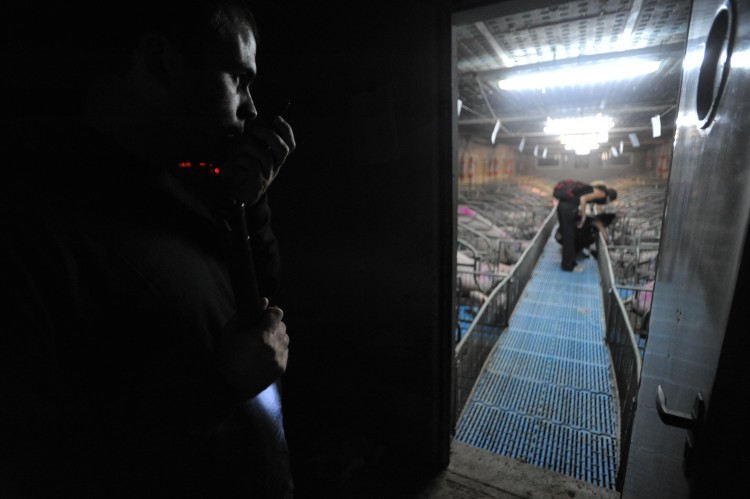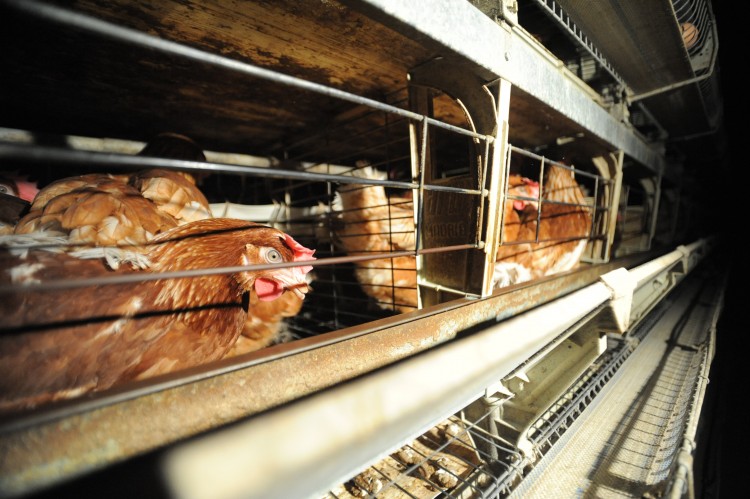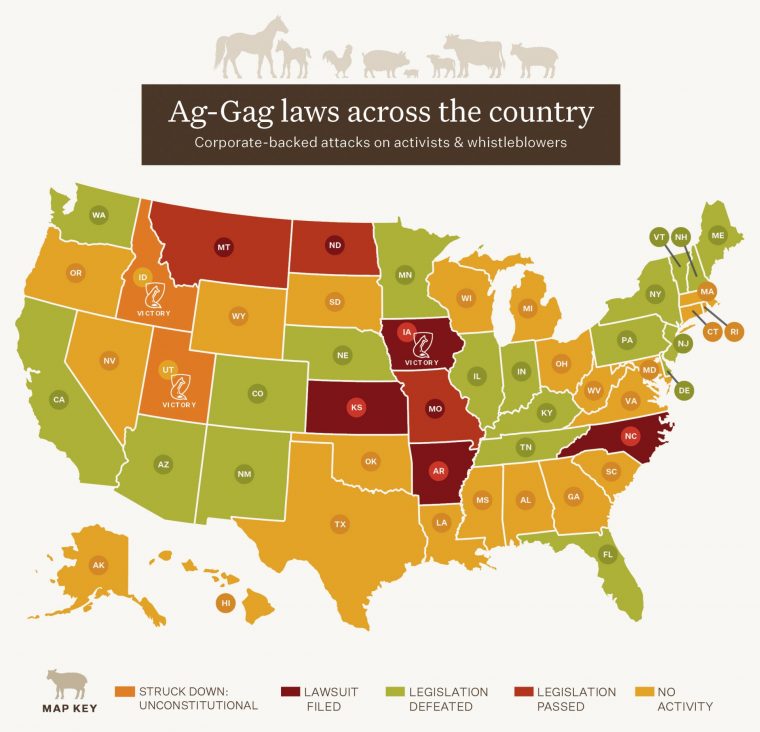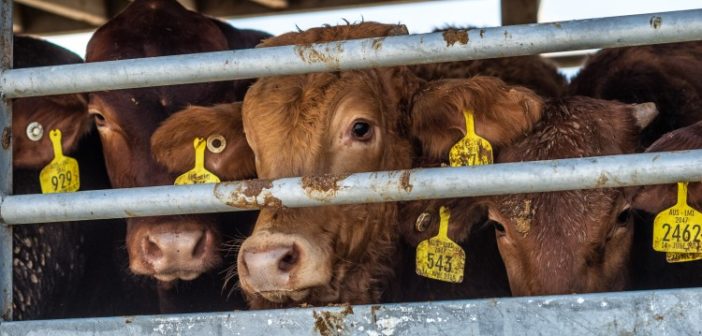Today billions of farm animals experience unimaginably cruel conditions every day. They are raised in strict confinement where they cannot move, their body parts are amputated in order to live in overcrowded conditions, many are sick, diseased and dying, they can’t express their natural behaviors, they receive little or no veterinary care, are psychologically tormented every day by restrictive and cruel conditions, and on top of all of this, workers beat them, terrorize them, abuse them, and kill them violently. The horrors that animals are exposed to today in industrial animal farming are unconscionable. But instead of fixing the systemic problems, farmers and legislators seek to silence whistleblowers and undercover investigative reporters who try to expose the truth to the public about animal agriculture.
If the conditions in which we raise animals for slaughter are so awful they can’t be seen, then they should be reformed, not hidden by the force of the state.
Ezra Klein, January 4th, 2019
Ag-gag laws defined
Ag-gag laws, also known as “agricultural interference/fraud laws,” are laws designed to prohibit recording or undercover investigations at industrialized farming operations (commonly known as factory farms). Modern ag-gag laws have their roots in the “ecoterrorism laws” of the early 1990s, but in recent years, there has been a clear shift in priority away from preventing trespassing and property destruction towards stopping recording on industrialized farming operations. This shift is in large part due to the increased prevalence of undercover investigations by animal protection organizations.

Over the past few years, numerous investigations have exposed widespread animal abuse and legal violations at various farming operations, which has led to economic damage and even prosecutions. In some cases, the economic losses were so extreme that some farming operations have gone bankrupt and completely shut down as a result. In response, many legislators have introduced ag-gag bills claiming that they would protect well-intentioned farm owners from deceitful or misleading investigations and subsequent dissemination of recordings to the media. Opponents of the bills argue, however, that their true purpose is to prevent whistleblowers from exposing animal abuse and public safety violations.
The intent of ag-gag laws is to criminalize anyone who exposes animal cruelty and abuse on farms. The animal agriculture industry recognizes that evidence of such treatment would outrage most Americans, so they have used the law to gag investigators, reporters and journalists from documenting what actually happens on farms every day. Many ag-gag laws also silence and criminalize the exposure of inhumane practices at other facilities, including hospitals, elder care facilities, veteran care facilities, schools and private businesses.
How ag-gag laws are harmful
Ag-gag laws are harmful to animals by preventing the truth from being exposed, as the ability to investigate, document and publicize corporate animal agriculture’s cruelty is imperative to the well-being of billions of farm animals who are cruelly raised for food. These laws are also harmful to people and our First Amendment rights under the United States Constitution. The public have the right to know the truth about unethical industry practices for their own personal health, food safety, environmental protection, and access to information about the food they eat.
We should be allowed to see how our food is made. We should be able to bear seeing how our food is made.
Ezra Klein, January 4, 2019
Industrialized animal agriculture jeopardizes food safety, workers’ rights, environmental standards, community rights, property rights, and causes billions of animals to suffer every single day. But the animal agriculture industry wants to keep their cruel, abusive practices hidden from the public. People have the right to know and want to know the truth.

Ag-gag laws are the wrong solution
For as long as farmers have put food on American tables, the government has endeavored to support and protect the agricultural industry.
Judge Robert J. Shelby
The New York Times Editorial Board wrote in 2013 that ag-gag laws have nothing to do with protecting property, but rather their purpose is to hide the details of factory farming from consumers. They wrote, “The ag-gag laws guarantee one thing for certain: increased distrust of American farmers and our food supply in general. They are exactly the wrong solution to a problem entirely of big agriculture’s own making. Instead of ag-gag laws, we need laws that impose basic standards on farm conditions and guarantee our right to know how our food is being produced.”
The spread of ag-gag
Ag-gag laws were started as a result of undercover investigations by factory farm employees who recorded and documented animal abuse. Farm employees were seen smashing and killing piglets on concrete floors at Iowa Select Farms and beating pigs with metal rods and sticking clothespins in pig’s eyes and faces at Iowa Hormel Foods. Whistleblowers also exposed workers kicking and beating dairy cows on dairy farms and beating downer cows who could no longer walk. Undercover reporters, journalists and investigators exposed these illegal and horrifically cruel practices, which caused Iowa legislators to pass a law in 2011, the first of its type banning the collection of evidence of cruelty and crimes against farmed animals.

Since 2011, 25 U.S. states have introduced ag-gag legislation. Seven of those states have passed some form of ag-gag law. Iowa was the first state to pass a post-2011 ag-gag law, creating a new class of crime called “agricultural operation interference,” which placed a complete ban on recording images or audio at an industrialized farming operation and criminalized applying for employment under false pretenses. Utah, Wyoming, Missouri, Idaho, and North Carolina have since followed, passing their own forms of ag-gag laws.
What you can do
Share videos on social media. Since ag-gag laws are about silencing us, share the truth, and ask friends to support fighting ag-gag laws. Share these videos on social media or these videos that are not as gruesome.
Boycott animal agriculture. Don’t buy animal products or food made from animals. Cut out all meat, dairy and eggs.
Contact your representatives. Tell your state legislators (Senators, House Representatives and Governors) how ag-gag laws are offensive and why you are against them. Send emails, make phone calls and schedule a meeting in person to discuss your concerns. Find your legislators here.
Sign petitions. Join others signing petitions to stop these laws. Sign Farm Forwards’ petition.
Start your own campaign. Launch your own personal campaign against ag-gag laws, even if they are not in your state. See the Food Integrity Campaign for ideas.
Download Animal Legal Defense Fund’s Factory Farms & Ag-Gag Laws brochure, and share it with others.
This article originally appeared on the Humane Decisions website.
Featured image: cows look out from a transport truck in Israel. Image credit Jo-Anne McArthur / Israel Against Live Shipments.





